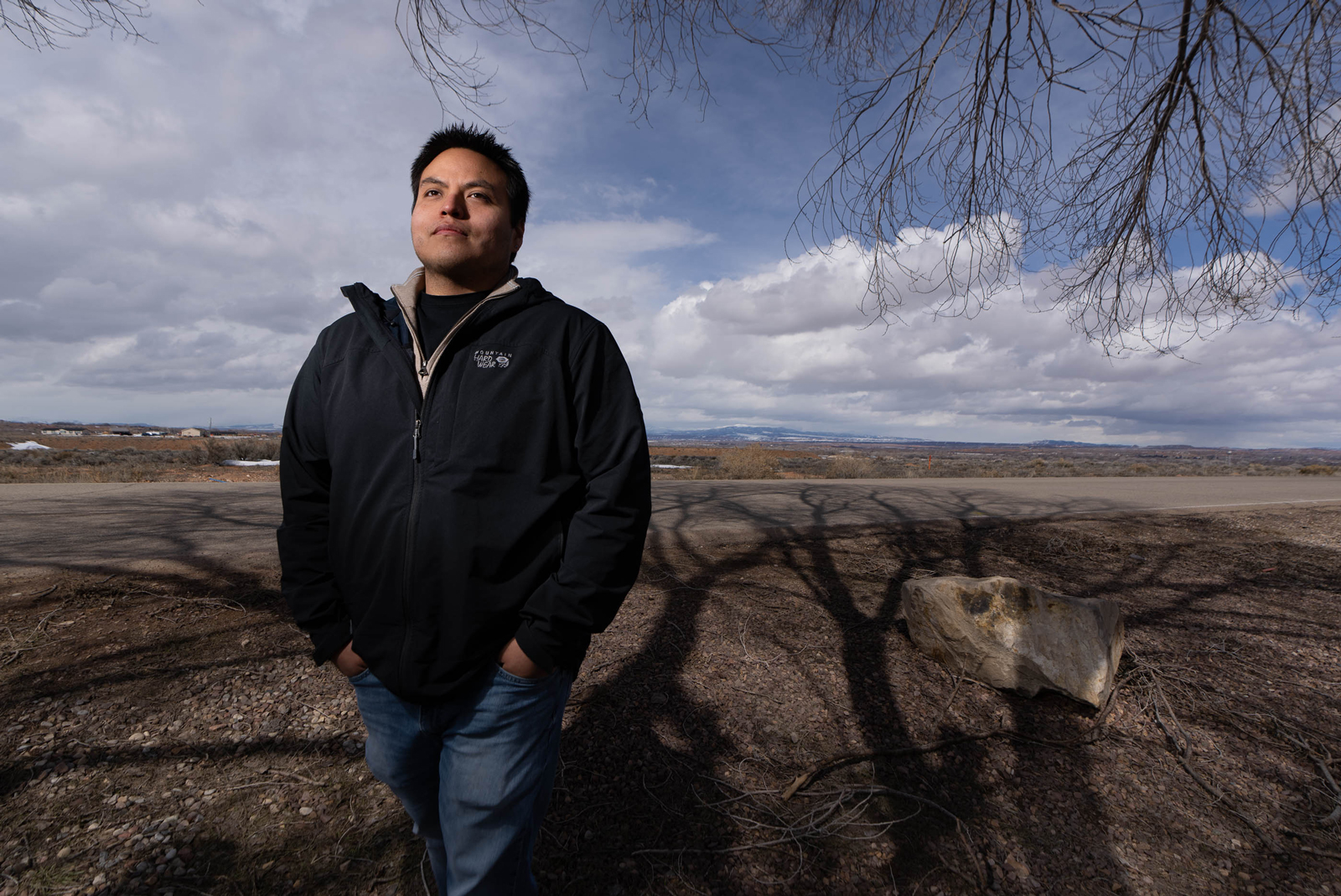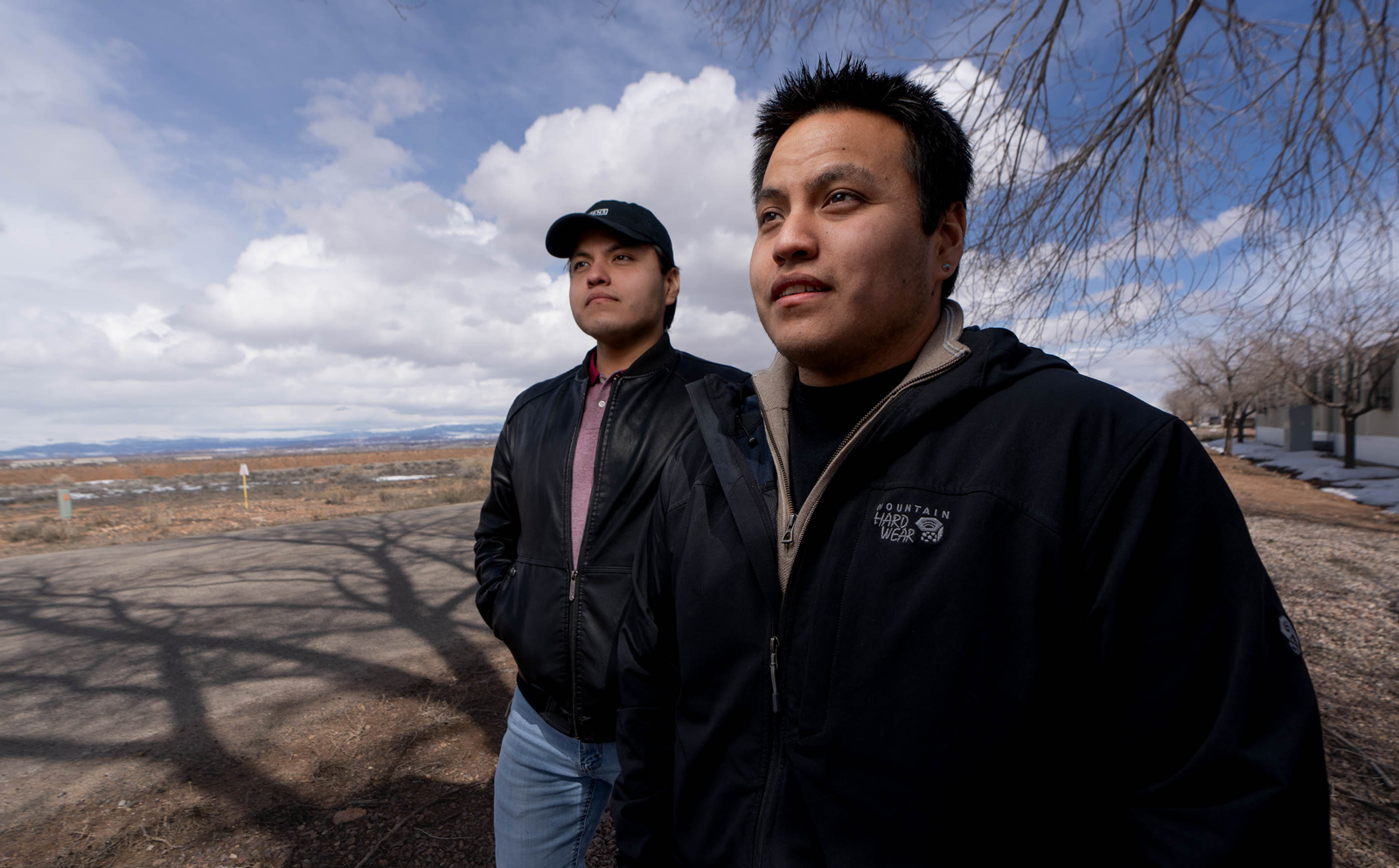By Joseph DuShane-Navanick
Special to The Tribune

Overlooking my hometown of Fort Duchesne once stood Todd Elementary. There I learned how to jump off swings, sing my ABCs and occasionally kick a ball or two.
I still remember my first steps into the school. My mother was clutching my hand and leading me and my twin brother into Mrs. Mair’s classroom. There I met my classmates who would follow me through my elementary school years and even past them.
The school is still overlooking the Uintah and Ouray Indian Reservation. But it has since been remodeled and is not the same Todd Elementary I grew up with (it has since been renamed Eagle View Elementary). It is still the first school many of the young Native Americans go to because of its proximity to the reservation.
My time at Todd Elementary was just about what one could expect: P.E., music class, recess, school lunch. But I don’t remember much about being educated there. Sure, there were lessons about math, English, spelling — none really seemed to matter, though, as much as recess did.
This lack of push in education fundamentals would haunt me for the rest of my life, especially with grammar and spelling.
Leaving the school was huge change for me and my brother. You see, Todd Elementary had a huge Native population. There, our culture was celebrated and understood. One of the fondest memories I have is when a Bear Dance was held at the school. And if you don’t know what Bear Dance is, you should come to Fort Duchesne more often.
But many students left the school around 6th grade, me and my brother included. We now found ourselves at Roosevelt Middle School, which is located in a whole other town than Todd Elementary.
There was just a handful of Native kids in the whole middle school — no one dressed like us, talked like us or even shared similar experiences. It seemed my Native culture and beliefs were not valued or celebrated at this new school. The precious memories of attending sweat with my grandma, celebrating the coming of spring with the Bear Dance, learning to sing with my uncle, the smell of coffee paired with frybread and eggs. I was just another kid who happened to be brown and different.
Roosevelt Middle School was the first time in my memory that I was ever graded. The teacher called my and my brother’s names. We walked up, held out our hands and received our grades. We stood there for a moment looking at what was just placed in our hands. I looked at the teacher in confusion and back at the report card: It read all F’s in every single subject. I did not know what to do. I definitely couldn’t show my mom.
But where do I go from there? The teacher did not point me or my brother in any direction where we could receive help. We were on our own.
This would be a pattern that followed me and my brother to our next school.
One subject that I desperately needed help in was English. It’s not that I didn’t have anything to say, but I didn’t know how to spell or write a complete sentence. I would struggle just to spell simple words. I found myself unable to express myself. Writing a paper or a simple sentence was so frustrating. I had to substitute words that I wanted to say for words I could spell.
At one point, I had an English teacher that gave up reading one of my papers. She read the first paragraph and marked everything in red that was wrong. I had run-on sentences, incomplete sentences, misspellings. I didn’t know how to use a comma, so I placed some randomly.
After my teacher marked up the first paragraph, she wrote a note in the upper right corner saying: “I can’t even read this, so I’m not going to try. It makes no sense, and there are a lot of issues with your grammar and spelling. Please try harder on future essays.”

I was deeply hurt and discouraged from what the teacher wrote. I felt behind, stupid and even more out of place than before.
My troubles with English did not let up and did not get better. Every teacher seemed content to pass me with a C and push me along to the next grade.
Now keep in mind I loved learning. Some of my favorite subjects were science, math and art. My brother and I would spend hours and hours watching the Science Channel and the History Channel — back when they were actually about science and history. We learned about the earth and all the animals in it, how cells interact with the world, the evolution of mankind, the history of the World Wars, the history of the different cultures of the world. We soaked it all up like a sponge.
But when we would go to school, the environment was not the best. Home was comfortable and welcoming — a place where I could be myself. But school was far from home, far from the reservation, foreign, uncomfortable, unwelcoming. I couldn’t be myself at school.
Back to my English problem, I still very much was struggling and did my best to pass; however, that changed when I got to Vernal High School. I was in my sophomore year, taking English, and my teacher at the time was very much loved in the school. He had been there for years — teaching most of the students’ parents when they went to school.
His class was hard. We had to take a weekly spelling test, along with writing prompts. My brother and I were struggling to keep up both in spelling and writing. The teacher saw this; he saw how we were struggling in his class. And he did something that had never been done before for us: He asked us if we needed some help.
I was shocked. That doesn’t happen. Teachers don’t care about Native students.
But he did and he offered a tutoring session after school. It was a Tuesday when my brother and I went into his classroom. We didn’t know what to expect, but the teacher started with a couple of questions. Like what makes a sentence? Where do you put a comma? What is a pronoun? What is an adverb? My brother and I just looked at each other; quietly and sheepishly, we said: “We don’t know.”
The next two hours were spent going over the basics of writing and grammar. The teacher went over everything, stopping frequently to make sure we were following along. We went over nouns, pronouns, adjectives, verbs, when and how to use commas and, most importantly, how to write a full sentence. This was the first time I fully grasped what a sentence was and what made up a proper sentence.
It was heartbreaking to realize how simple it was. All the times I received markups on my paper, the teacher would tell me I needed to have better grammar. But I had no idea what better grammar looked like. I cried on my way home because now I understood. Now I had some, but not all, of the tools I need to do better. And all it took was someone who cared enough to show me.
I would go on to find another teacher in the high school who cared about me. And with his guidance and help, I got a certificate of completion from the Uintah Basin Technical College in the auto mechanics program, along with a certificate in beginner and intermediate welding. This man’s name is Mr. McKee, and I hold him in high regard.
He knew about Native Americans, their struggles, humor and culture. He went to school with them and grew up interacting with them. He also made an effort to get to know me and every student that made their way into his classroom.
Taking Mr. McKee’s class changed the course of my life. I fell in love with everything car related. I even went on to get additional training at WyoTech, a technical school in Wyoming.
However, I would not stay in the field of car mechanics for long. I had other dreams and aspirations, so I enrolled in Salt Lake Community College. Now I am graduating with an associate degree in political science.
My eyes are set next on law school and becoming a lawyer to help my tribe and other tribes represent themselves in state and federal court. The schooling — or the lack of it — and other people’s perceptions of me did not define who and what I want to become.